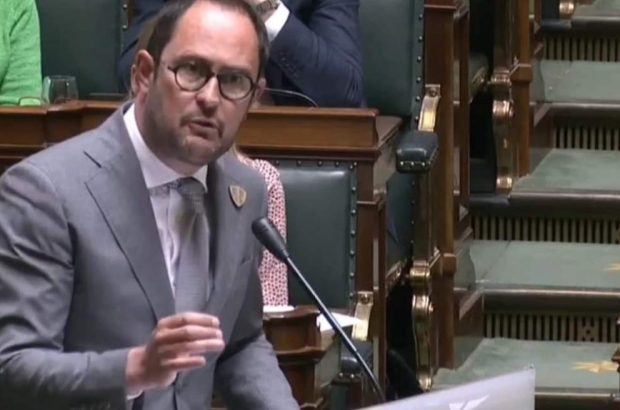- Daily & Weekly newsletters
- Buy & download The Bulletin
- Comment on our articles
Belgium withdraws recognition of Muslim Executive
Belgium’s justice minister Vincent Van Quickenborne has revoked recognition of the Muslim Executive, citing a “lack of transparency” regarding the group's operations.
“I have never experienced such amateurism,” Van Quickenborne said of the organisation.
“A body that fulfils a crucial role for the Muslim community in our country deserves better and that is why I have decided to withdraw the recognition.”
The Muslim Executive became an official point of contact between the Belgian state and the Muslim community back in 1996, with responsibilities that include applying for recognition of mosques, organising Islamic religious education, appointing and training imams and setting up Muslim plots in public cemeteries.
This week’s decision to withdraw recognition is the culmination of a long battle between the justice minister and the organisation.
Van Quickenborne asked for reforms that would make the Muslim Executive more “inclusive, pluralistic, representative and transparent” in exchange for a subsidy of over half a million euros a year, saying that he wanted it to establish a more modern and Belgian version of Islam without influence from countries such as Morocco or Saudi Arabia.
The Executive put forth some proposals in February, but Van Quickenborne said they did not go far enough and began the procedure for withdrawal that same month. But since then, the case has dragged on and Van Quickenborne told Radio 1 that problems with the organisation persist.
“Despite numerous promises, the necessary measures have still not been taken to date,” Van Quickenborne said.
“As a result, the Muslim community in our country still does not have the representation to which it is entitled, which hinders the integration of Muslims in our country.”
Belgian state security said there was foreign interference in the organisation in 2020, and Van Quickenborne said the organisation lacked democracy: despite a board of 17 elected members supposedly representing the different strands of the Muslim community, he said that in reality, management was in the hands of a few individuals.
The board has not even met since October 2019, and its own 2020 evaluation report pointed to several shortcomings, including a lack of female representation and infiltration by extremists.
By withdrawing recognition, the minister says he wants “to pave the way for a truly representative, transparent and professional Muslim Executive”.
Until then, no more subsidies will be paid out, as was already the case for funds earmarked for 2022.
Van Quickenborne is calling on younger members of the Muslim community, who had been prevented by conservative leadership from “writing their own stories”, to step forward and lead the way in creating a more progressive EMB.
“A lot of third- and fourth-generation Muslims want to break away from their country of origin and do want to be representative of the Muslim community in our country, but they hit a wall,” Van Quickenborne said.
“They, too, have had enough of the Executive's scheming. I expressly want to reach out to them. In the coming months, we must ensure that a team is ready that is transparent and representative.”


















